Apple to increase iTunes music samples to 60 seconds? |
- Apple to increase iTunes music samples to 60 seconds?
- XperiaX10 to finally get Android 2.1
- Intel buys iPhone processor maker
- LG shows off 3D OLED TV and 180-inch Plasma HDTV
- Nintendo dropping price of DSi and DSi XL
- Roku drops the price of all their set-top boxes
- Xbox Live Gold subscription getting more expensive soon
- AMD set to kill off ATI branding
- Microsoft asks Supreme Court to intervene in i4i patent case
| Apple to increase iTunes music samples to 60 seconds? Posted: 30 Aug 2010 09:18 PM PDT 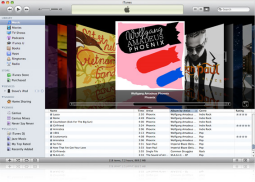 According to sources speaking to CNET, Apple is prepared to double the length of time prospective buyers can listen to music tracks before buying, from 30 seconds to one minute. According to sources speaking to CNET, Apple is prepared to double the length of time prospective buyers can listen to music tracks before buying, from 30 seconds to one minute. CEO Steve Jobs will announce the change on Wednesday, during Apple's annual September media event. Apple has not confirmed the report, declining to comment on "speculation." A long time complaint about iTunes (and other music download sites) is the fact that 30 seconds is usually not enough time to see if a song is really for you. Furthermore, the sources say Jobs will use much of the media event showing off how Apple is improving the iTunes music discovery experience. We will have a full report on Wednesday. |
| XperiaX10 to finally get Android 2.1 Posted: 30 Aug 2010 08:18 PM PDT 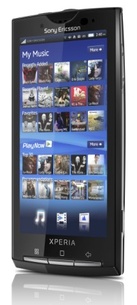 Sony Ericsson launched the high end smartphone Xperia X10 earlier this year which disappointed would-be buyers when it came with the outdated Android firmware version 1.6. Sony Ericsson launched the high end smartphone Xperia X10 earlier this year which disappointed would-be buyers when it came with the outdated Android firmware version 1.6. In May, the company noted that it would possibly update the smartphone to Android 2.1 in the Q4, and today they have confirmed the update. Posting via Twitter, SE UK has said it will begin rolling out the 2.1 update in September, earlier than expected. Coming with 2.1 for the X10 are HD video recording, Wireless home connectivity via DLNA and improvements to signature applications Timescape and Mediascape to make them even smarter and richer. The X10 has a 1GHz Snapdragon processor, and a 4-inch 854x480 touchscreen which until now, did not have official multi-touch support. |
| Intel buys iPhone processor maker Posted: 30 Aug 2010 07:46 PM PDT 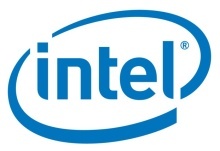 Intel has purchased part of the large wireless chip maker Infineon Technologies AG, buying the company behind the chips used in the Apple iPhone. Intel has purchased part of the large wireless chip maker Infineon Technologies AG, buying the company behind the chips used in the Apple iPhone. The company has fallen far behind in the growing smartphone processor market since their technology uses too much power, draining the phone battery too quickly. With the acquisition today, for $1.4 billion in cash, Intel now has the wireless-chip division of the company, and an instant "in" to the market. Intel purchased the mobile software company Wind River Systems last year for $885 million, and they have since been creating the mobile OS dubbed "Moblin," which will run on smartphones using Intel chips. Additionally, the company recently paid $7.68 billion for the large security software firm McAfee, and the company plans to integrate security into its mobile chips. With the addition of Infineon, Intel will be the fifth-largest supplier of smartphone processors. |
| LG shows off 3D OLED TV and 180-inch Plasma HDTV Posted: 30 Aug 2010 07:25 PM PDT 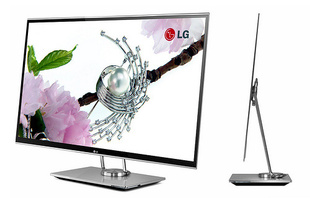 LG has announced that it will showoff a 2.9mm 3D OLED TV at the IFA 2010 event starting on September 3rd, claiming it is the world's thinnest OLED to date. LG has announced that it will showoff a 2.9mm 3D OLED TV at the IFA 2010 event starting on September 3rd, claiming it is the world's thinnest OLED to date. There were little other details available about the TV. The TV will indeed be the thinnest in the world, unless Samsung unveils a thinner one during the event. In addition, LG will unveil an 180-inch plasma 3D TV prototype, on the of the largest commercial 3D displays ever created. The IFA 2010 Consumer Electronics Show will run from September 3rd until the 8th in Berlin. |
| Nintendo dropping price of DSi and DSi XL Posted: 30 Aug 2010 07:09 PM PDT 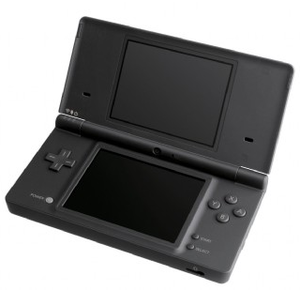 Nintendo has announced that they are dropping the price of the DSi and DSi XL handhelds in September, likely as a way to slowly clear our inventory before the eventual launch of the 3DS. Nintendo has announced that they are dropping the price of the DSi and DSi XL handhelds in September, likely as a way to slowly clear our inventory before the eventual launch of the 3DS. Starting on September 12th, the DSi will drop to $149.99 and the large XL will drop to $169.99. The 3DS will give gamers a chance to watch 3D movies and play 3D games without the need for any special glasses. Nintendo released the DSi XL last year, introducing the handheld with 93 percent larger screens than the DSi allowing for easier playback of movies and easier Internet surfing. The DS Lite will stay at $129. |
| Roku drops the price of all their set-top boxes Posted: 30 Aug 2010 06:43 PM PDT 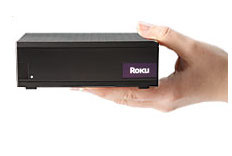 Roku has dropped the prices of their set-top boxes this week, taking up to 30 percent off each of their available devices. Roku has dropped the prices of their set-top boxes this week, taking up to 30 percent off each of their available devices. The Roku SD, originally priced at $80, is now $60. Roku's midlevel Roku HD box (the most popular of the series) is now $70 after being $100. The Roku HD-XR, which adds extended range via Wireless-N, is now $100 after being $130. Roku was the original Netflix streaming set-top, but the company has since updated the boxes to include Amazon VOD, UFC matches, and other channels. You can buy the boxes here: Roku Price Drop You can read our review of the original Roku Digital Video Player here: Review: The Roku Digital Video Player |
| Xbox Live Gold subscription getting more expensive soon Posted: 30 Aug 2010 06:32 PM PDT 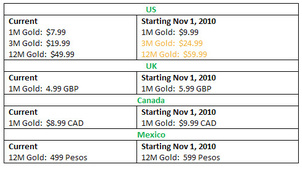 According to XBL director of programming Larry "Major Nelson" Hryb, a Gold subscription to Xbox Live will soon cost you significantly more. According to XBL director of programming Larry "Major Nelson" Hryb, a Gold subscription to Xbox Live will soon cost you significantly more. Starting November 1st, users in the U.S., UK, Canada and Mexico will face a price increase for the service. In the U.S., a one month Gold card will jump from $7.99 to $9.99. A 3-month sub will jump from $19.99 to $24.99. Finally, a 12-month sub will jump from $49.99 to $59.99. In the UK, a 1-month sub will move from 5 GPB to 6 GPB. Canadian gamers will see their 1-month sub price increase from $8.99 CAD to $9.99 CAD. Additionally, in Mexico the 12-month sub will increase to 599 pesos from 499. As a way to give back to loyal XBL fans before the price hike, Microsoft has dropped the price of the 12-month subscription in the U.S. to $39.99 until November 1st. |
| AMD set to kill off ATI branding Posted: 30 Aug 2010 06:20 PM PDT  AMD, the world's second largest CPU maker and the world's largest seller of discrete graphics chips has said today it is killing off the ATI brand name, four years after the company purchased ATI Technologies. AMD, the world's second largest CPU maker and the world's largest seller of discrete graphics chips has said today it is killing off the ATI brand name, four years after the company purchased ATI Technologies. The logo for ATI, which has been around since the 1980s, will be removed from all future GPUs, leaving just the Radeon name. Sources that have seen the new logo say it will appeal to gamers and general consumers. Removing ATI branding should help AMD to unify its wide brand of products, thus making itself more relevant in the eyes of consumers. On the downside, the ATI logo is very recognizable to end-consumers that have installed graphics cards over the last decades. Despite that, one source says: "When I saw the new Radeon logo, I shortly forgot that ATI was not next to it. It looks rather compelling." AMD has not confirmed the reports. |
| Microsoft asks Supreme Court to intervene in i4i patent case Posted: 30 Aug 2010 12:20 PM PDT 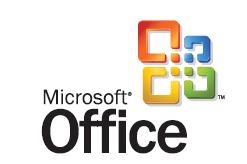 Surprising no one, Microsoft has filed an appeal of their loss in the i4i patent case. They were found to be infringing a patent on formatting documents using a separate XML file with markup instructions. Surprising no one, Microsoft has filed an appeal of their loss in the i4i patent case. They were found to be infringing a patent on formatting documents using a separate XML file with markup instructions. They use this technology in Word's DOCx file format. In papers filed late last week, Microsoft lawyers claim lower courts are using an incorrect standard for the proof of prior art required to invalidate i4i's patent on a 'Method and system for manipulating the architecture and the content of a document separately from each other.' Microsoft claims that because patent examiners failed to properly research prior art (existing use of the technology), it shouldn't be considered valid without 'clear and convincing' evidence to the contrary. Instead, they say, the lower standard, 'preponderance of the evidence,' is appropriate. This is key to the company's defense, they say, because the proof of prior art, in the form of source code written by an i4i developer prior to joining the company, has been destroyed. In fact it was written for a program called S4, which the i4i developer worked on for his previous employer. This makes it nearly impossible for Microsoft to come up with evidence which would meet a 'clear and convincing evidence' standard, which is similar to 'beyond a reasonable doubt,' used for criminal cases. 'Preponderance of the evidence,' on the other hand, would only require Microsoft to prove that the older product probably (more than 50% likely) invalidates the patent. Use of the higher standard is based on the statutory requirement laid out in the US Code that "A patent shall be presumed valid." Microsoft argues, "In KSR International Co. v. Teleflex, Inc., this Court found it "appropriate to note" that the rationale for the presumption of patent validity—on which the Federal Circuit bases its deferential clear-and-convincing-evidence standard—"seems much diminished" when an invalidity defense rests on evidence that the PTO never considered. 550 U.S. 398, 426 (2007). Yet despite having numerous opportunities to revisit its entrenched rule that "[t]he burden of proof is not reduced when prior art . . . was not considered by the PTO," The i4i patent infringement case was originally heard by controversial Marshall, Texas judge T John Ward, whose court has the reputation of being more friendly to patent holders than most. This was pretty clearly the reason i4i, a Canadian company, would file a lawsuit against a company from Washington in an east Texas court. If Microsoft prevails, and first they have to convince the Supreme Court to hear their case, they will still have to convince a jury of their case, albeit at a lower standard of proof. But even if they were still unable to convince the jury, the Supreme Court ruling could signal a major change in the outcome of software patent disputes. This may be particularly true for patents issued from 1998 on. That was the year the number of patents granted jumped nearly a third from the year before. It was also the year a Federal Appeals Court decision (in State Street Bank v Signature Financial Group) opened the floodgates to allow business process patents, and by extension a new category of software patents for performing these processes. The results have included Amazon.com's patent covering 1-Click checkout and and Paul Allen's for suggesting products to people. Clearly there are legitimate questions about the quality of the patent approval process. Doesn't that merit changes to the way these patents are examined in court down the road? |
| You are subscribed to email updates from AfterDawn.com To stop receiving these emails, you may unsubscribe now. | Email delivery powered by Google |
| Google Inc., 20 West Kinzie, Chicago IL USA 60610 | |

0 comments:
Post a Comment